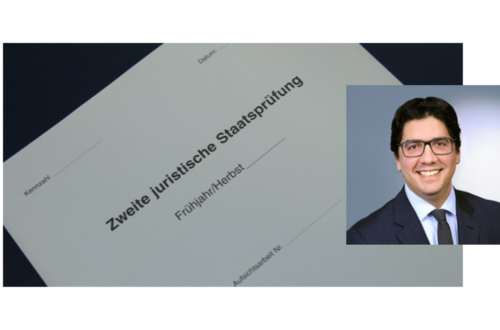Call for Special Issue Proposals for Volume 19
Call for Special Issue Proposals – Volume 19
The German Law Journal has a proud and successful tradition of publishing timely and innovative special issues. Some of these have become standard works in their respective areas of research. The Journal’s board often develops these. But each year the Journal also publishes one or two special issues that have been curated by external, guest editors. Many of these are publications following a conference and are much more widely read than edited collections by publishers. We particularly encourage the submission of special issue proposals that engage with cutting edge research within the ambit of German, European, Comparative, and International law and advance the dynamic, and increasingly meaningful, fields of transnational legal scholarship.
While we have always found the collaboration with guest editors to be invigorating and mutually beneficial, we now we receive many more special issue proposals than we are able to publish. So that our selection and development of the special issues we publish has the greatest possible integrity—ensuring both the highest quality for our readers and the best possible experience for our guest editors—we have coordinated our review of proposals into a single process to be completed well ahead of the year in which the selected projects will publish. This gives us the time we need to carefully consider the proposals. It also allows us to work closely with the guest editors to ensure that the content of these special issues meets the Journal’s high standard for quality.
Special Issue Selection Procedure
Special issues will be selected once a year for the next volume.
A call for special issue proposals will be announced at the Journal’s website. This is an open call, inviting proposals on any topic likely to be of interest to the Journal’s readers. The standard for selection will be the proposal’s quality, including timeliness, innovativeness, and strength of the project’s content.
There is no set structure for the special issues but we would expect the guest editor(s) to write an introductory paper explaining the overall project and presenting the individual papers. The number and length of contributions in a special issue depend on the topic and the approach taken. There is some flexibility in this regard, as long as the selection of contributions is coherent and meets the Journal’s high standard for quality. Most of our special issues have 10-15 contributions (including introduction and conclusion) but longer and shorter special issues may also be accepted. On average, each contribution should not exceed 9,000 words, but here, too, there is some flexibility. On all such issues, coherence and quality should be the guide. Please go to the Journal’s Submissions page to consult the style guide.
A special issue proposal should include the following:
- A statement describing the project. The proposal should clearly outline the idea and the originality of the proposal. It should also discuss the state of affairs in the relevant field(s) or research and explain the proposal’s relationship to the existing research.
- The proposing editor’s C.V.
- A draft table of contents clearly identifying the expected contributors and their affiliations.
- Abstracts for each of the expected contributions highlighting how each contribution speaks to the special issue’s theme. The current status of each text should be indicated (still being written, submitted but not yet reviewed by editor, reviewed and revised based on editor’s feedback).
- The entire proposal (excluding any draft chapters / articles) should not exceed 7,000 words.
The submission deadline for a special issue proposal is the 31 March 2017. The proposal should be send to Dr Jule Mulder, University of Bristol: jule.mulder@bristol.ac.uk
Each special issue proposals will be assigned to a member of the Journal’s board of editors. The “assigned editor” will correspond with the team proposing the special issue to ensure that we have the information that we think is necessary for a full and fair consideration of the proposal. The “assigned editor” will prepare an internal report—including a recommendation regarding publication—that will guide the board’s consideration of the proposal.
The board will meet to discuss and select up to three special issue proposals. The editors of the proposals that are not selected will be notified as soon as possible after the board’s decision is taken. The board aims to reach a final decision about all submissions by the end of the summer 2017.
The editors of the selected proposals will continue to work closely with the “assigned editor,” who will have the responsibility of ensuring that all the pieces in the collection meet the Journal’s high standard for quality. The guest editor is responsible for the editing process and the submission of the final manuscript. The “assigned editor,” in consultation with the guest editor, will have the authority to demand revisions to the project’s content and, in exceptional cases, insist that poor quality texts be excluded from the collection. The Journal reserves the right to reject the whole special issue—or individual contributions—in the event that our high standard of quality is not met.
DEADLINE FOR SPECIAL ISSUE PROPOSAL SUBMISSIONS – VOLUME 19: 31 March 2017
SUBMISSIONS SHOULD BE SENT TO: Jule Mulder [ jule.mulder@bristol.ac.uk ]







